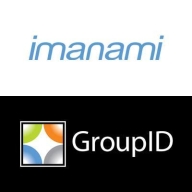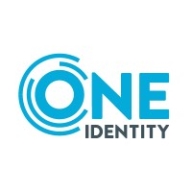

One Identity Active Roles and Imanami GroupID are leading identity and access management solutions. One Identity Active Roles is favored for support and pricing satisfaction, while Imanami GroupID stands out for its features and user perception of value.
What features are offered by One Identity Active Roles in comparison to Imanami GroupID?One Identity Active Roles offers comprehensive customization capabilities, automation, and responsive customer service. Imanami GroupID provides granular group management, detailed reporting features, and excellent feature-value balance.
What areas of improvement can be found in One Identity Active Roles in comparison to Imanami GroupID?One Identity Active Roles needs improved documentation, enhanced reporting capabilities, and better integration options. Imanami GroupID requires a more intuitive process, improved integration options, and better usability enhancements.
How is the ease of deployment and customer service of One Identity Active Roles in comparison to Imanami GroupID?One Identity Active Roles receives positive feedback on deployment ease and customer service responsiveness. Imanami GroupID users report a steeper learning curve but find the customer support satisfactory once understood.
What setup costs and ROI can be seen with One Identity Active Roles in comparison to Imanami GroupID?One Identity Active Roles users find the setup cost reasonable with good ROI over time. Imanami GroupID users feel its pricing justifies its features and report solid ROI as well.
| Product | Market Share (%) |
|---|---|
| One Identity Active Roles | 10.2% |
| Imanami GroupID | 1.2% |
| Other | 88.6% |


| Company Size | Count |
|---|---|
| Small Business | 7 |
| Midsize Enterprise | 2 |
| Large Enterprise | 17 |
Groups don’t live forever. Project teams disband, departments re-organize, and employees change status. GroupID from Imanami leverages the pervasiveness of Microsoft® Active Directory and empowers IT professionals with the tools needed to effectively provision and manage users. Users can be quickly entered into the correct distribution and security groups, and are easily managed across multiple systems.
There Are Three Main Benefits To A Complete Group Management Solution:
Groups Are Never Out Of Date.
Users are empowered to solve common problems independently. Security and access aren’t compromised. IT is empowered with the right tools to help employees. Staff productivity goes up. What more could you want?
One Identity Active Roles is a highly regarded solution for Active Directory (AD) security and account management. One Identity Active Roles will enhance group, account, and directory management while eradicating the need for manual processes. The end result is a significant increase in the overall speed, efficiency, and security of the organization.
Using One Identity Active Roles, users can:
Managing accounts in AD and Azure AD can be tremendously challenging; continually keeping these important systems safe and secure presents an even greater challenge. Traditional tools can be inefficient, error-prone, and very disjointed. In today’s robust marketplace, organizations are finding it somewhat difficult to keep pace with the constant access changes in a hybrid AD ecosystem. Additionally, there are significant security issues to consider (government compliance, employee status/access changes, and other confidential business requirements). And, of course, there is a requirement to properly manage Active Directory and Azure Active Directory access in addition to managing all the other numerous SaaS and non-Windows applications that organizations use today.
Users can easily automate all of these tedious, mundane administrative tasks, keeping their systems safe and error-free. Active Roles ensures users can perform their job responsibilities more effectively, more efficiently, and with minimal manual intervention. Active Roles was created with a flexible design, so organizations can easily scale to meet your organizational needs, today, tomorrow, and in the foreseeable future.
Reviews from Real Users
A PeerSpot user who is a Network Analyst at a government tells us, “It has eliminated admin tasks that were bogging down our IT department. Before we started using Active Roles, if one of our frontline staff members deleted a user or group, it could take several hours to try to reverse that mistake. Whereas now, the most our frontline staff can do is a deprovision, which just disables everything in the background, but it's still there. We can go in and have it back the way it was two minutes later. Instead of it taking two hours, it only takes two minutes.”
Becky P., Sr Business Analyst at George Washington University, shares, “In addition, with the use of workflows and the scheduled tasks, we were able to automate and centrally manage a number of the processes as well as utilize them to work around other product limitations. Those include, but are not limited to syncing larger groups, which have 50,000 plus members, to Azure AD. We sync up to Azure AD using ARS. If we had not already had ARS in place, it would have been impossible for us to have done so in the time period we did it in. We did it in under six months. ARS probably saves us at least two weeks out of every month. It's reduced our workload by 50 percent, easily.”
We monitor all Active Directory Management reviews to prevent fraudulent reviews and keep review quality high. We do not post reviews by company employees or direct competitors. We validate each review for authenticity via cross-reference with LinkedIn, and personal follow-up with the reviewer when necessary.